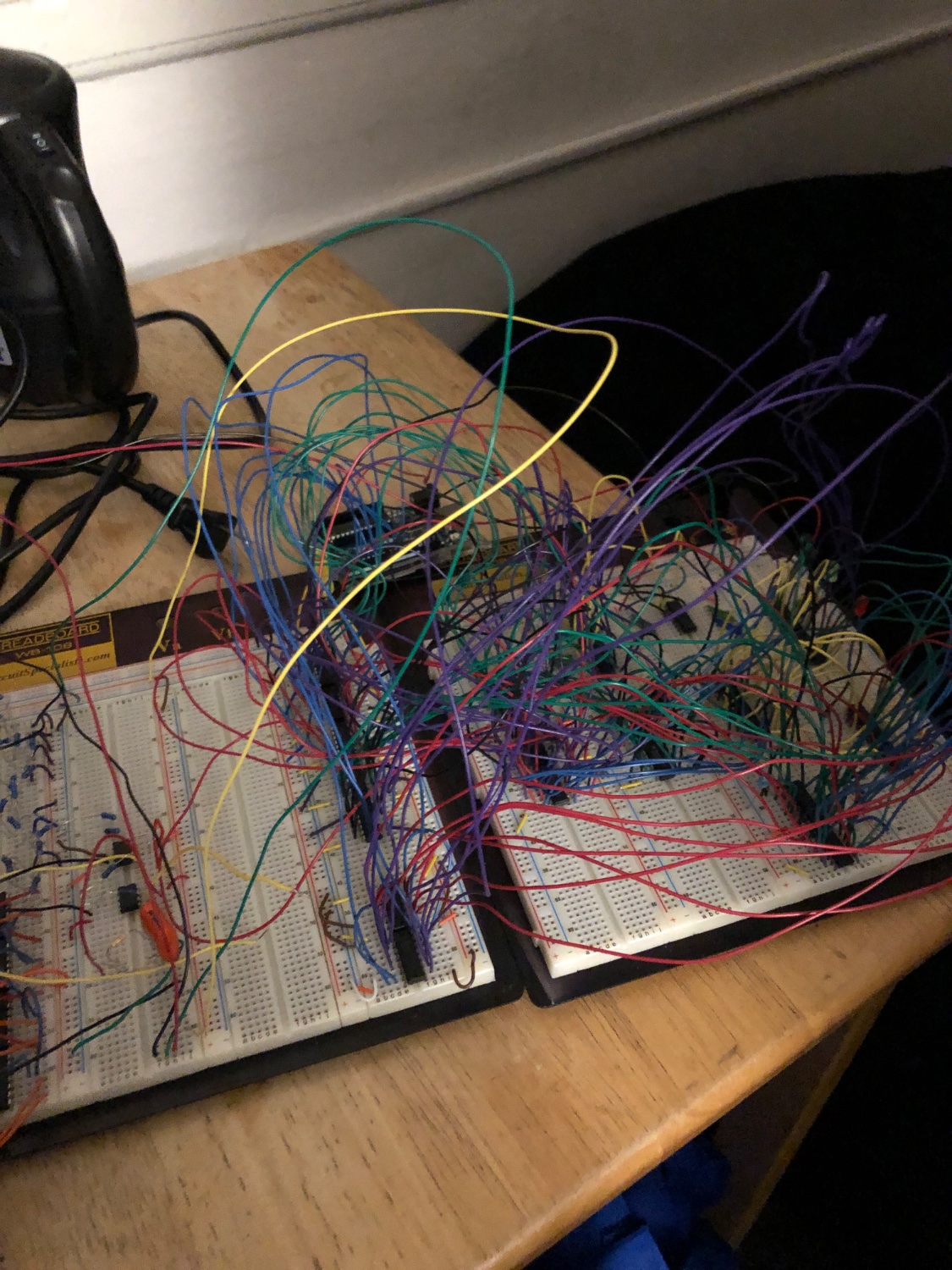
Here’s my attempt! (Actually this is a rudimentary 8-bit processor, minus a few pieces).

Here’s my attempt! (Actually this is a rudimentary 8-bit processor, minus a few pieces).


That depends on the specifics of the black hole you are falling into. It could be over in the blink of an eye, or it could be like one of those medieval torture machines. The main difference being the mass: a smaller black hole would kill you faster.


Imagine you are falling, but someone hooks something onto your feet, and attaches it to a rocket that shoots downwards at a speed far faster than you are falling at, so fast that it rips your legs off.
That’s what spaghettification is. One part of your body is being pulled in so much harder than the other part of your body that it rips you apart.


The reason you do stuff in a venv is to isolate that environment from other python projects on your system, so one Python project doesn’t break another. I use Docker for similar reasons for a lot of non-Python projects.
A lot of Python projects involve specific versions of libraries, because things break. I’ve had similar issues with non-Python projects. I’m not sure I’d say Python is particularly worse about it.
There are tools in place that can make the sharing of Python projects incredibly easy and portable and consistent, but I only ever see the best maintained projects using them unfortunately.


What is the “executable” in this context? I’m kinda confused as to what you are looking for.
What’s wrong with parsing the input files at runtime? Is it performance? Do you want one file to load instead of multiple?
Many have suggested pickle, which is kinda what you are asking for, but on some level it’s not much different from parsing the input files. Also, depending on your code, you may have to write custom serialization code as part of getting pickle to work.
Note that pretty much every modern game is a bundle of often multiple pieces of executable code alongside a whole bunch of separate assets.


I do think the voice acting is god awful in a lot of places in the original.


The OG version is still on GoG! Includes all of the original DLC but none of the new PSN bull.


I don’t believe everything on the internet is a lie (although of course I don’t believe everything on the internet is true either). You have to read it and judge for yourself.
In the case of getting medical advice, there is an inherent bias to finding anecdotes on the internet. The people who post are going to be the people who have something to say. That’s going to be either people who had a life changing positive experience, or who have something to complain about. The middle-ground experience is underrepresented.
However, there is value in anecdotes. The doctor can tell you high likely a given side effect might be, but people on the internet might have a better description of what that experience is like.
I try to take in as much information as I can when I am making an informed decision, including things like asking my doctor, finding anecdotes on the internet, and finding actual scientific papers.


In a disaster situation they have to decide who does or doesn’t get treatment:
It’s made by the company that made the original Marathon. Or what’s left of that company at least…


To add to how scary prions are, you can’t really cure them, and when the prions get on a surface, it’s extremely difficult to sanitize that surface in a way that will destroy the prions. A lot of techniques that kill bacteria or even viruses like alcohol won’t work on them. Heat works but you have to make it extremely hot, much hotter than what’s needed to kill something like a bacteria.
Here’s how I would do this in blender:

So here’s the thing that confuses me about your use of the word “deterministic”: even if you have balls phasing through collision objects, the game will still be deterministic in the sense that the same initial conditions for the ball will result in the same final location of the ball.
Ways that it can become non-deterministic are usually either intentional randomness, race conditions from multithreading, or using a variable time delta for your update cycle, such that the time delta is dependent on the operating system, physical device, etc.
As long as you aren’t doing any of those things, the game will still be “deterministic”.

A few ideas:
I’m not sure what you mean about decimal point handling - that’s always going on (unless you are trying to work with purely integer variable? Even then, there’s rounding involved whenever you need to divide…)
I’m also not sure what you mean by the engine becoming “nondeterministic”.
“Just follow the build instructions on GitHub”
1000 error messages ensue.


Also the Virtual Console releases, and things like the demo games in Smash Bros. brawl,


Could I run larger LLMs with multiple GPUs? E.g. would 2x3090 be able to run the 48GB models? Would I need NVLink to make it work?


You pay for it in the data they collect from you and the ads they show to you.
Or the Supreme Court makes something up about why it doesn’t count